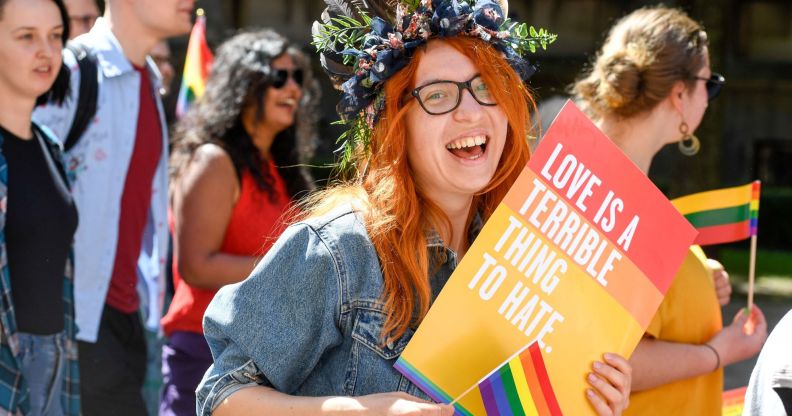Latvia legalises same-sex civil partnerships in historic first

Latvian same-sex couples will now be able to register in civil unions. (Getty)
The Latvian parliament has voted to allow same-sex couples to establish civil unions in a historic first for the Baltic nation.
Officials voted on Thursday (9 November) to permit same-sex couples the right to have their partnership legally recognised as part of legislation set to come into effect in mid-2024.
Couples in civil unions will be afforded certain tax and social security benefits, as well as union hospital visiting rights, although unions will still have less rights than married couples which, legally speaking, are still defined as only between a man and a woman.
Gay rights activist Kaspars Zalitis noted that couples in same-sex unions would still be unable to adopt children and still face inheritance issues in Latvia.
“This is a great beginning,” he told Reuters. “Latvia is not one of the six countries in the European Union that have no recognition for same-sex couples.”
Countries that have no recognition for same-sex couples in the European Union include Romania, Bulgaria, Croatia and Hungary.
The move comes following the appointment of Edgars Rinkēvičs – both Latvia and Europe’s first out gay head of state – in July this year.
The former foreign minister was sworn in as president of Latvia on 8 July following his election win earlier in 2023.
During a speech, Rinkēvičs promised to “break the glass ceiling” and to help fight inequalities that had become a “significant problem” in Latvia.
“During my presidency, I will stand up for the creation of a modern and strong Latvia, for a legal and just Latvia, for the wellbeing of the people, for an inclusive and respectful society,” Rinkēvičs said.
Despite his appointment, a 2019 Eurobarometer poll found that 45 per cent of Latvians would be uncomfortable with having a gay or bisexual high-ranking official.
The poll also found that 54 per cent of Latvians found the idea of having a gay or bisexual colleague uncomfortable.
While the vote is a significant step in the right direction for the conservative country, justice minister Inese Libina-Egnere said parliament did not intend to provide civil unions with the same rights as married couples.
“We are acknowledging that we have families which are not married, and this is the way they can register their relationship,” she said. “The political will is to have a really specific kind of registered partnership.”

